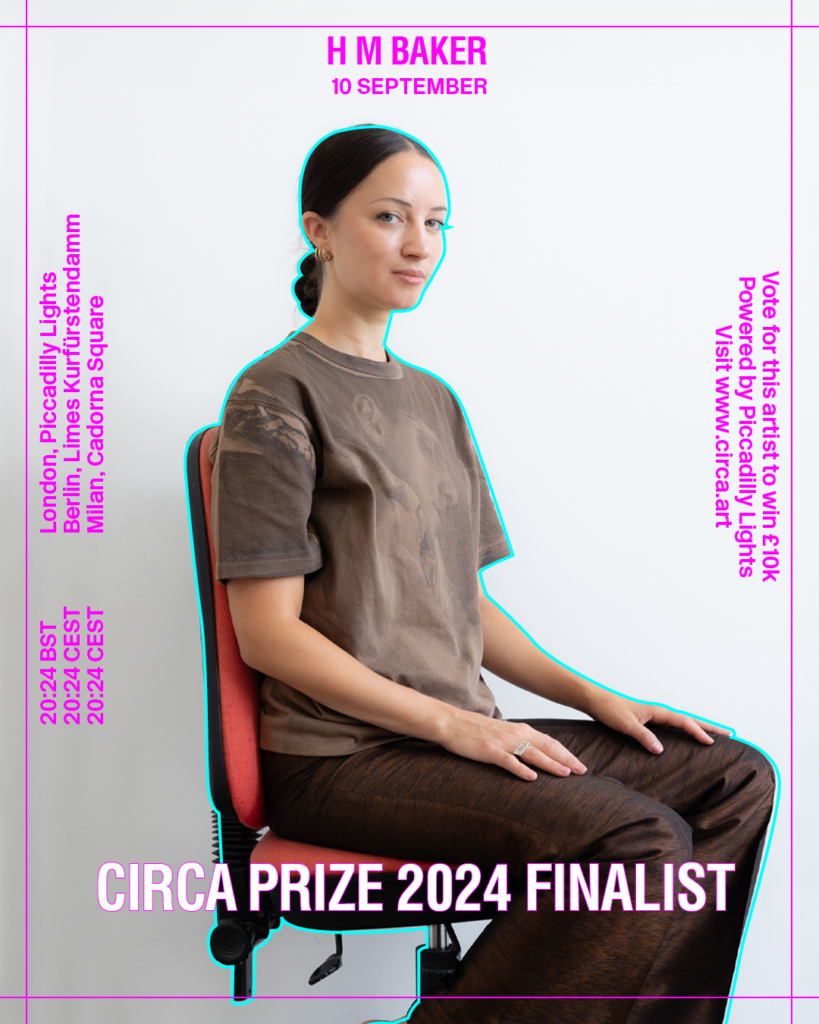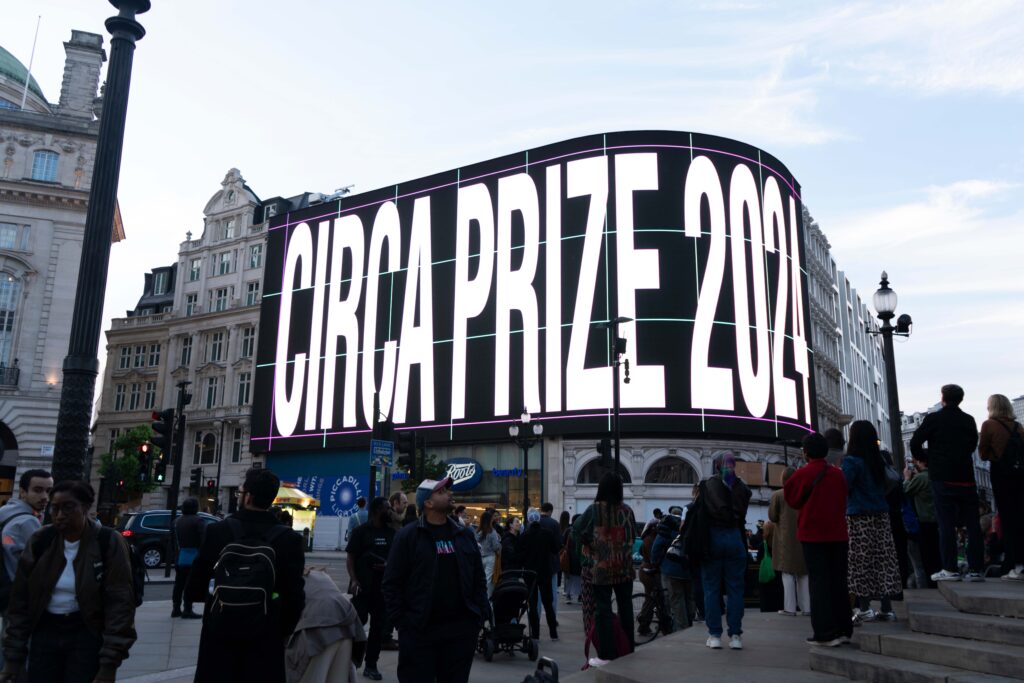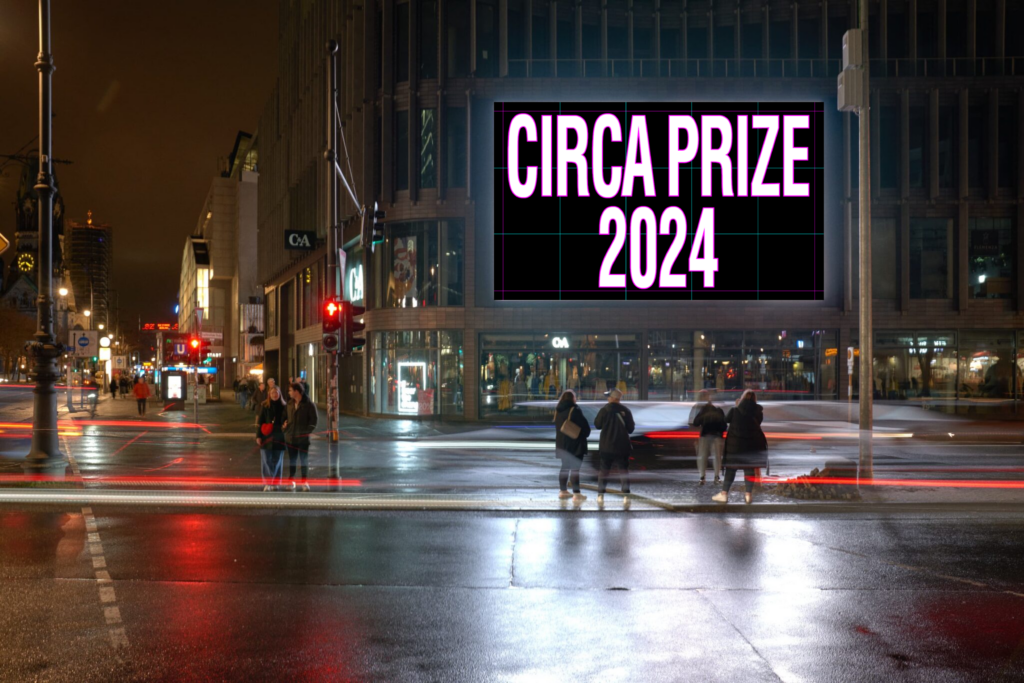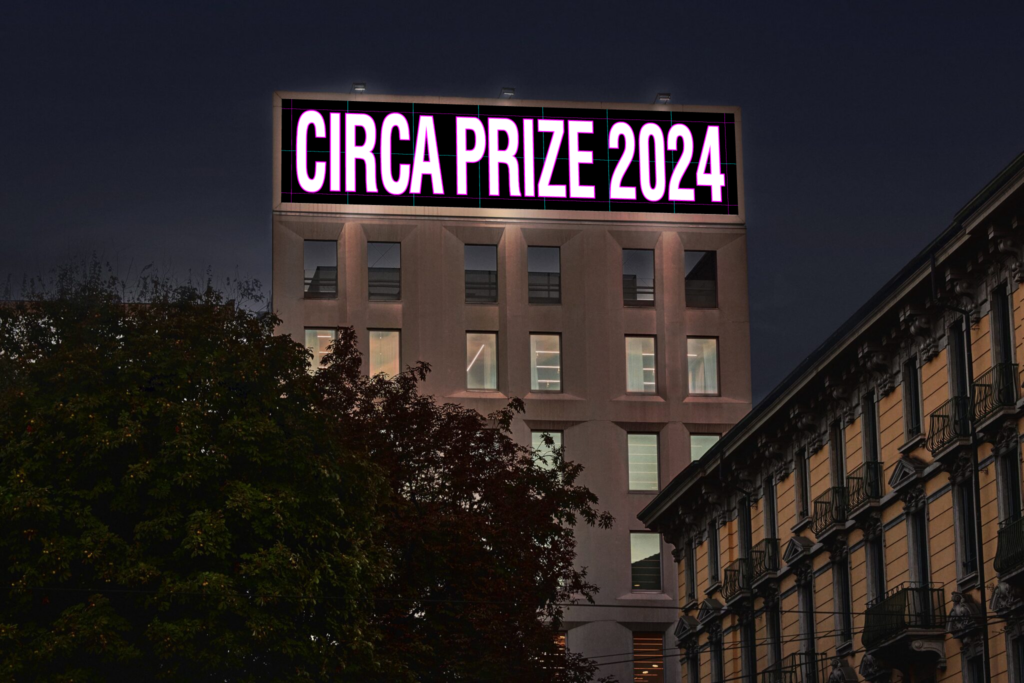H M BAKER
10 September, 2024
My practice is concerned with systems of power, labour, gender and performativity. Working collaboratively across performance, film, and text and print, I create long-term research projects that scratch at the veneer of the world of work.
The gestures, costumes, props, and language of my practice direct the violence of professional conformity into works that address modernity’s lingering imprint on the bodies of workers. This vocabulary, which I call Corporate Drag, draws on anti-work scholarship, Marxist-feminist labour theory, and the shame of my own laziness.
I am interested in the question proposed by Kathi Weeks: why do we work so long and so hard? She elaborates that the place of work is where we experience the most immediate, unambiguous, tangible relations of power that most of us will encounter on a daily basis. I believe this relational dynamic of authority resonates in the body as a choreography that is felt over the course of a lifetime.
During the pandemic, non-essential workers (such as myself) experienced time that, if momentarily, was not structured by the working day. It was here, with space enough to daydream, that I became interested in the idea of a post-work imaginary. I would also argue it was here that, with time to organise, mutual aid networks, mass protests and new forms of solidarity emerged where the fear of occupational reprisal was abated. I believe that outside of a subordination-domination dialectic new worlds can emerge. I believe in the pleasure of leisure.
HOW IS YOUR WORK INFLUENCED BY THE CIRCA 2024 MANIFESTO?
Strikes, protests and refusals are connected to histories of labour. These moments rupture repetition and break cycles of oppression. The CIRCA 20:24 manifesto resonates with my view that the concept of work in its current form needs re-imagining. The widespread incidences of burn-out and exhaustion amongst workers signals a need to break free from an old model where safety and security is only guaranteed by work. I use my research as a way to explore how the body echoes such anxieties and offers possibilities through which new models for living together, with the greatest possible care, can arise.
BIG TIME is a study on how the labouring body subsumes relational authority. Repetition, syncopation, rest and energetic discharge mark the passing of time throughout the course of a working day. Punctuating images of workers in the film are images of performers performing work, offering the viewer a glimpse of another world behind the choreographic labour, a possibility for imagining behind the veneer.
We filmed BIG TIME as a performance workshop, likening the labour of performance to the performance of labour. It was shot with four separate cameras in an enclosed room at Studio Wayne McGregor, with DOP Jos Bitelli, choreographer Darcy Wallace, assistance from Jessie Griffiths and dancers Temitope Ajose-Cutting, Iris Chan, Richard Pye, and Jonny Vieco. The full edit is 22:00.
WHAT WOULD YOU CREATE/DO WITH THE £30K CIRCA PRIZE?
I would embark on a new film work centering the voices and choreographies of people excluded from the workforce with an exploration on how time is spent while not working. Growing up, I saw the effects of how a value system connected to careers can effect a sense of belonging and self-worth within a society that centres a job title as a status signifier. In this project I will address leisure, reciprocity, ‘sickness’, value and resistance in relation to forms of labour, both waged and unwaged through interviews, collaborative choreography and documentary.
FOLLOW H M BAKER ON INSTAGRAM

SCREEN LOCATIONS
From 1–30 September 2024, each CIRCA PRIZE 2024 finalist will have their work appear consecutively throughout the month at 20:24 BST on London’s iconic Piccadilly Lights, whilst also broadcasting across a global network of screens in Berlin and Milan.

LONDON
Watch the CIRCA PRIZE 2024 every evening from 1 – 30 September at 20:24 BST on London’s iconic Piccadilly Lights screen.

BERLIN
Watch the CIRCA PRIZE 2024 every evening from 1 – 30 September at 20:24 CEST on the Berlin Limes Kurfürstendamm screen.
